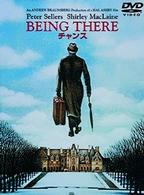- ホーム
- > 洋書
- > ドイツ書
- > Humanities, Arts & Music
- > Philosophy
Full Description
Putting ancient Greek and East Asian philosophies into conversation, this book argues that learning a martial art can provide practitioners with a deeper understanding of the philosophical views that animate the cultures from which traditional martial arts have developed. In this respect, a martial art has more to offer than techniques for self-defense or exercises that promote power, strength, flexibility, and coordination. Martial arts training can develop more aspects of a person than the various skills related to handling specific attacks and a clearer feeling of how to deal generally with conflict. Against the view that martial arts promote fighting and vicious behavior, this book argues that training in the traditional martial arts builds character and leads to virtue. Martial arts training provides experiences which integrate mind and body provide a philosophically informed and sound way to cultivate virtue. Building on the author's three decades of Aikido practice, the book also includes exercises readers can use to integrate martial arts practice into philosophy courses.
Contents
Chapter 1. Introduction (martial arts, virtue, Plato, Eastern philosophy, Pragmatism).- Chapter 2--Martial arts in Platonic education (Laches, Republic, Laws, war, justice).- Chapter 3. Arjuna and the conflict of war in the Bhagavad Gītā (conflict, Arjuna, Indian philosophy, karma, mosksa).- Chapter 4--Confucian thought, virtues, and the martial arts (Confucius, family, ritual, filial piety, love of learning).- Chapter 5--Early Buddhist philosophy and its radical implications for the martial arts (suffering, impermanence, no-self, causation, Siddartha).- Chapter 6--Daoism and nature as a model for martial action and virtue (self-cultivation, dao, virtue, nature, yin and yang).- Chapter 7 -- Zen meditation and the martial arts (Buddhism, nonduality, realization, no-mind, enlightenment).- Chapter 8 - American pragmatism, Eastern philosophy and the martial arts (pragmatism, pluralism, experience, martial arts, comparative philosophy).








